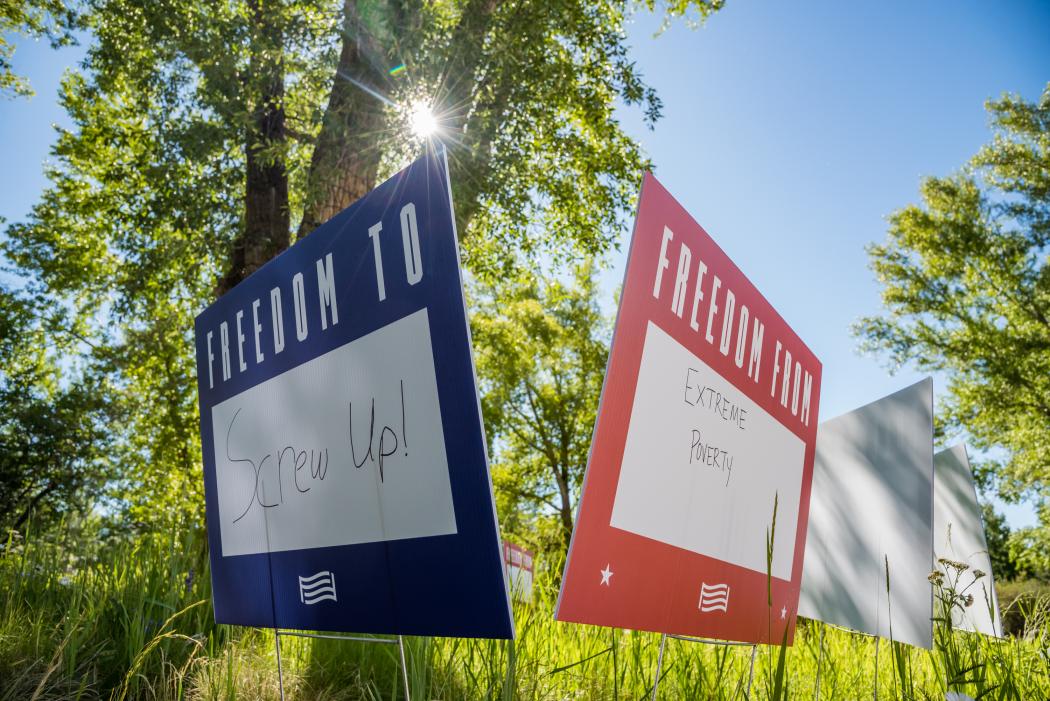This fall, Union will participate in For Freedoms: 50 State Initiative, one of the largest public art collaborations in U.S. history. The campaign involves artist-designed billboards in every state, the District of Columbia and Puerto Rico, as well as exhibitions, town halls and lawn sign events.
Presented by the Mandeville Gallery, the campus event will take place Sept. 17, 12:55 p.m.-1:45 p.m. on Hull Plaza at Schaffer Library.
Participants will be encouraged to produce and publicly display their own definition of freedom by completing signs that say: “Freedom of _______,” “Freedom from ____, “Freedom for ____” and “Freedom to ____.”
All materials will be provided. Once completed, participants can place their sign on the green between the Nott Memorial and Schaffer Library for the afternoon.
A selection of signs will be exhibited in the Learning Commons of Schaffer Library from Sept. 18 through March 21.
The event is co-sponsored by the Department of Visual Arts, Multicultural Affairs, UNITAS, American Studies and Film Studies.
Union joins an impressive group of more than 200 museums, universities, and cultural institutions staging similar events, meetings and special exhibits across the nation. They are intended to spark public conversation around such topics as democracy, patriotism, religion, gender expression and oppression.
With the motto, “For Freedoms. For Us All,” artists Hank Willis Thomas and Eric Gottesman founded For Freedoms in 2016: “as a platform for civic engagement, discourse, and direct action for artists in the United States.”
They were inspired by Norman Rockwell’s 1943 paintings of the four universal freedoms articulated by Franklin Delano Roosevelt in his 1941 State of the Union address – freedom of speech, freedom of worship, freedom from want and freedom from fear.
The non-partisan, nationwide campaign seeks to “use art to deepen public discussions of civic issues and core values, and to clarify that citizenship in American society is defined by participation, not by ideology.”
